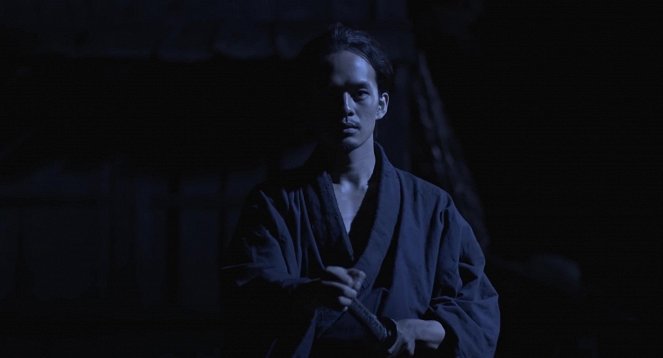Sinopsis(1)
Mokunoshin es un samurái que, durante la paz en Japón en el siglo XIX, ocupa sus días ayudando a unos campesinos. El encuentro con otro guerrero veterano y la llegada a la aldea de un grupo de ronin cambiarán su destino. Tras sumirse en el lodo de la Segunda Guerra Mundial en Fires on the Plain, Tsukamoto se remonta aún más atrás en la historia de su país para exponer de forma cruenta el peso de la violencia. (Sitges Film Festival)
(más)Reseñas (1)
Killing is a deconstruction of the samurai cult, cut down to its marrow, which paradoxically had never been achieved before by any other Japanese filmmaker. All relativistic samurai films of the 1960s by filmmakers ranging from Kobayashi and Gosha to Okamota, always addressed the corrosion of samurai dedication, honour and ideals, as well as the status of the whole state of being a samurai. Characteristically for the extent to which the icon of the samurai is intertwined with Japanese society, however, no one had ever journeyed into the very essence of the samurai caste, which consists in killing. As the title of Tsukamoto’s film suggests, that is primarily what this distinctive filmmaker focused on – training to kill and dehumanisation of an entire social class and, in the figurative sense, society as a whole, which was defined by this goal. As usual, it suffices for Tsukamoto to have a handful of characters and a minimum in terms of production facilities and budget, as the power of his vision lies in searching for the central thesis and the depiction thereof in maximally expressive scenes with a considerable amount of symbolism. While Gosha’s samurai were dirty and ragged, they still had their honour. Tsukamoto’s samurai are ruthless beasts of prey, dehumanised masters of death and desperate individuals in whom the basest instincts are bound with inhuman social ideals and values. Tsukamoto brings back to the act of killing the plane of absolute boundaries – between being and non-being, ideals and emptiness, innocence and pain, and between the student and the master.
()

